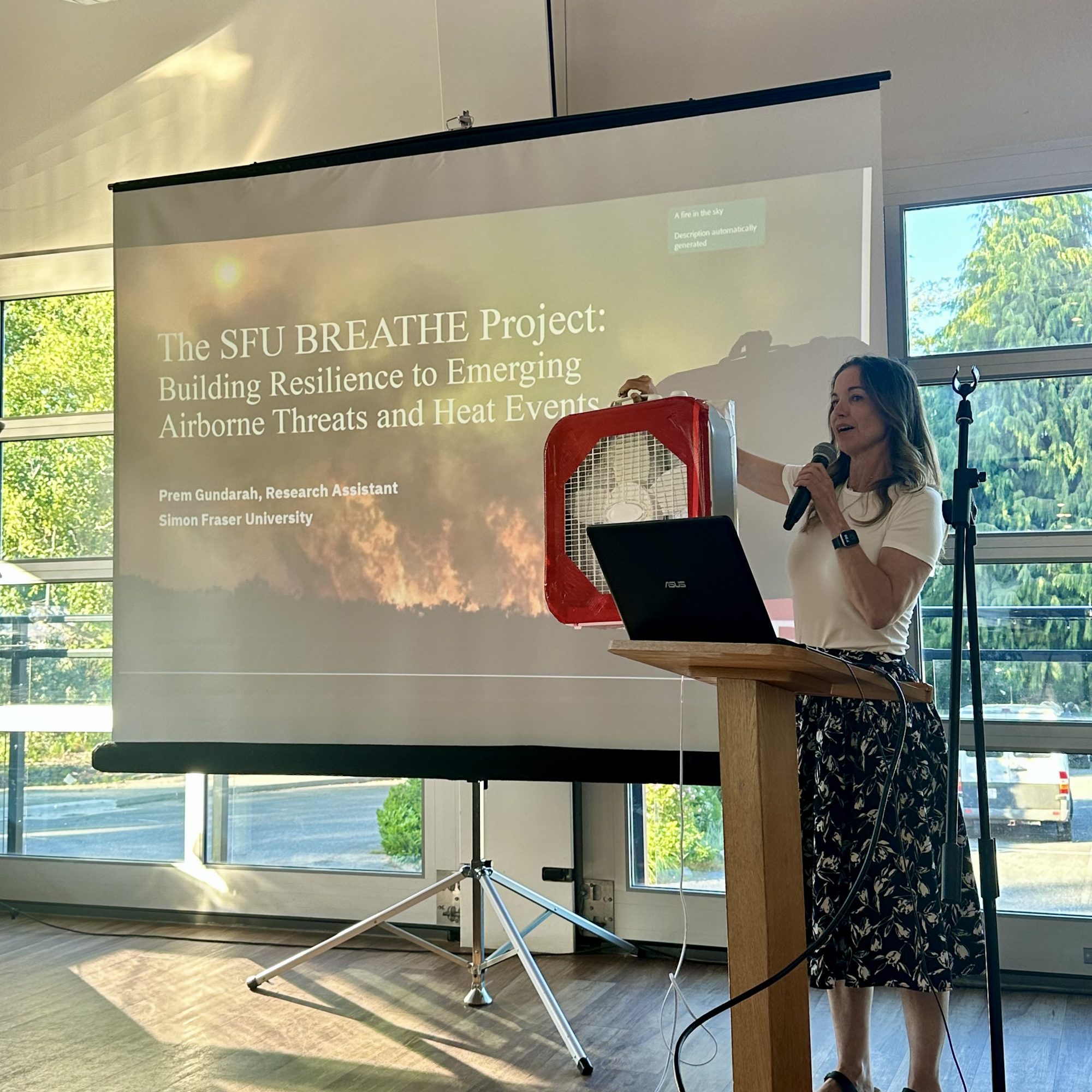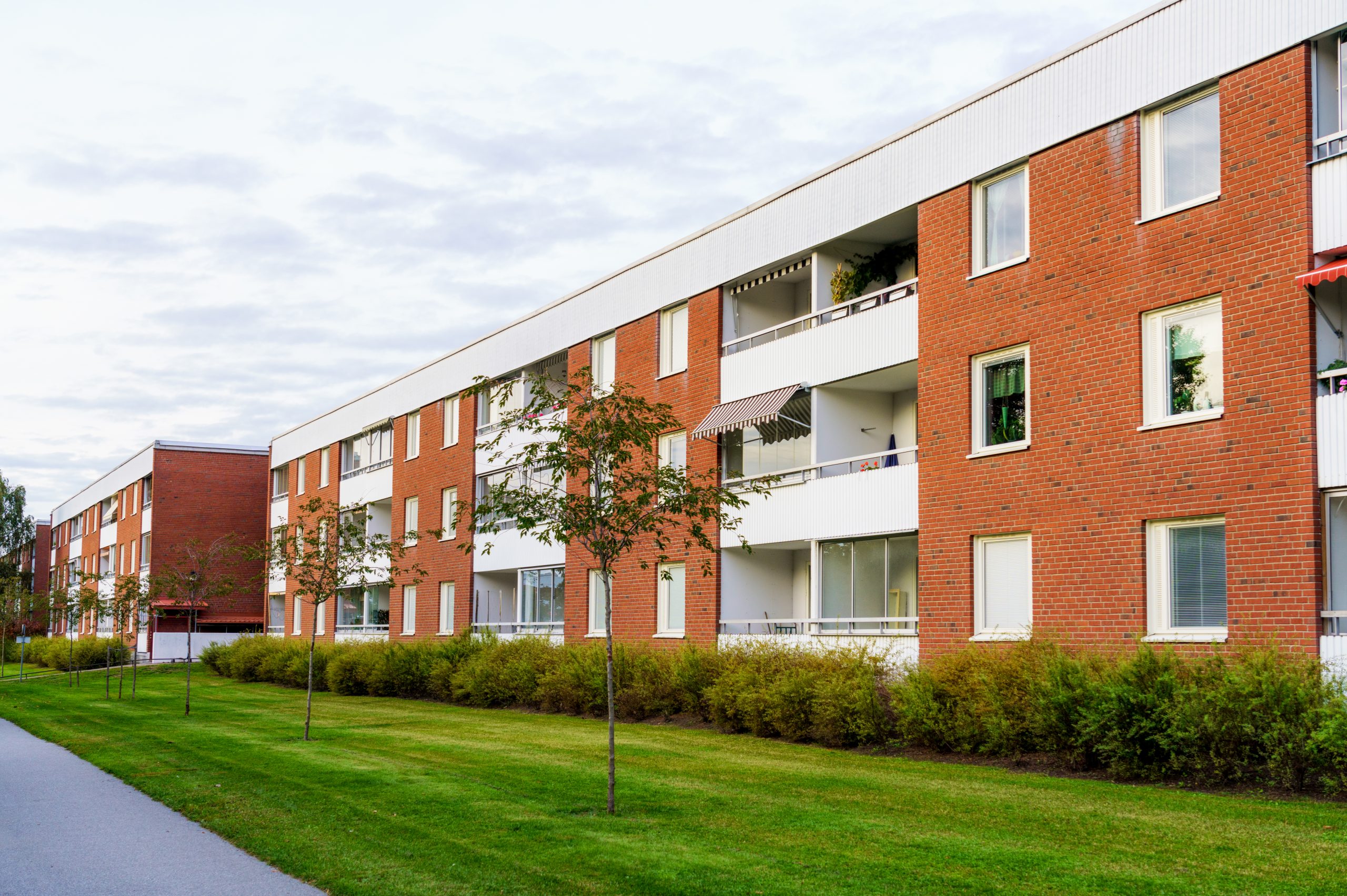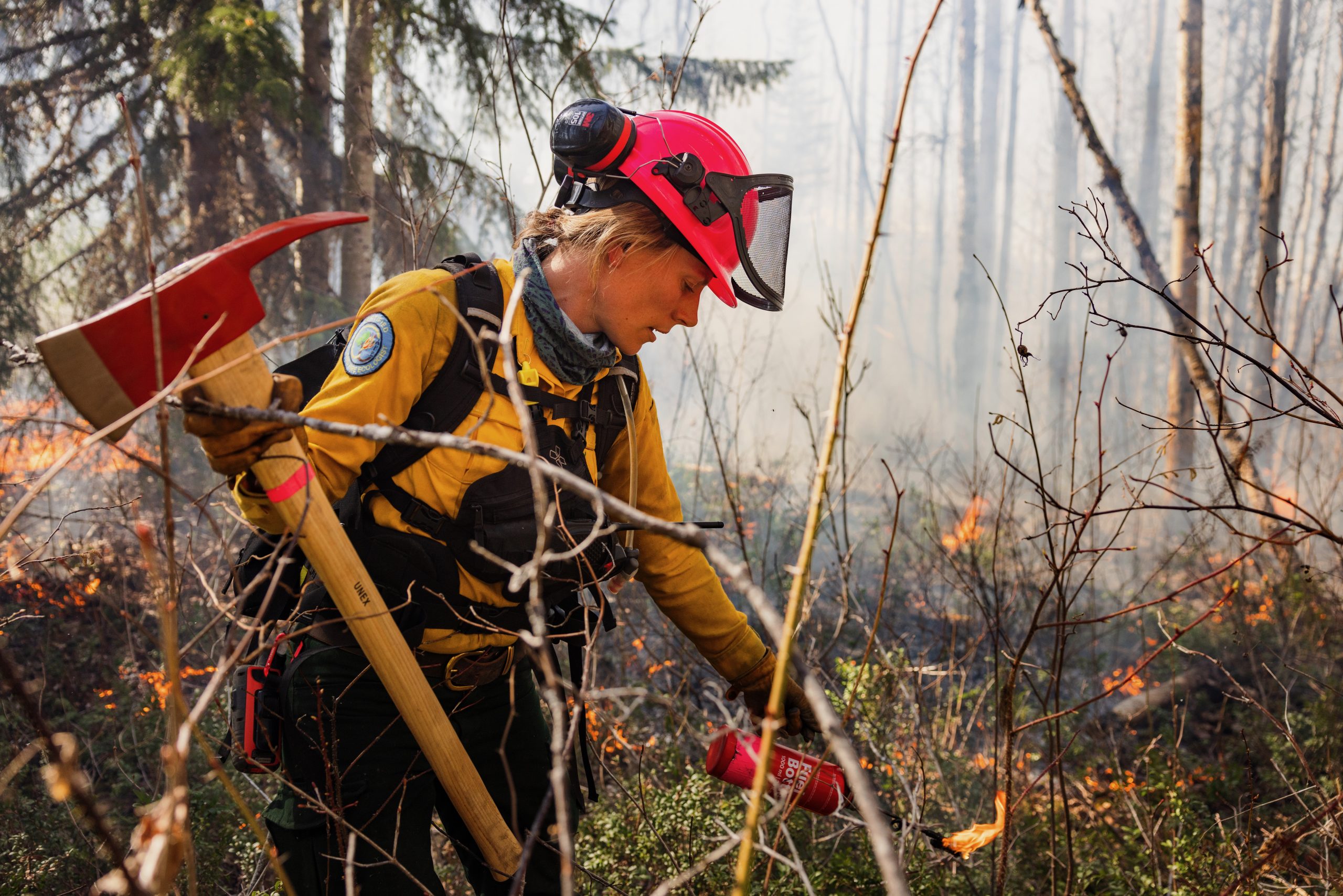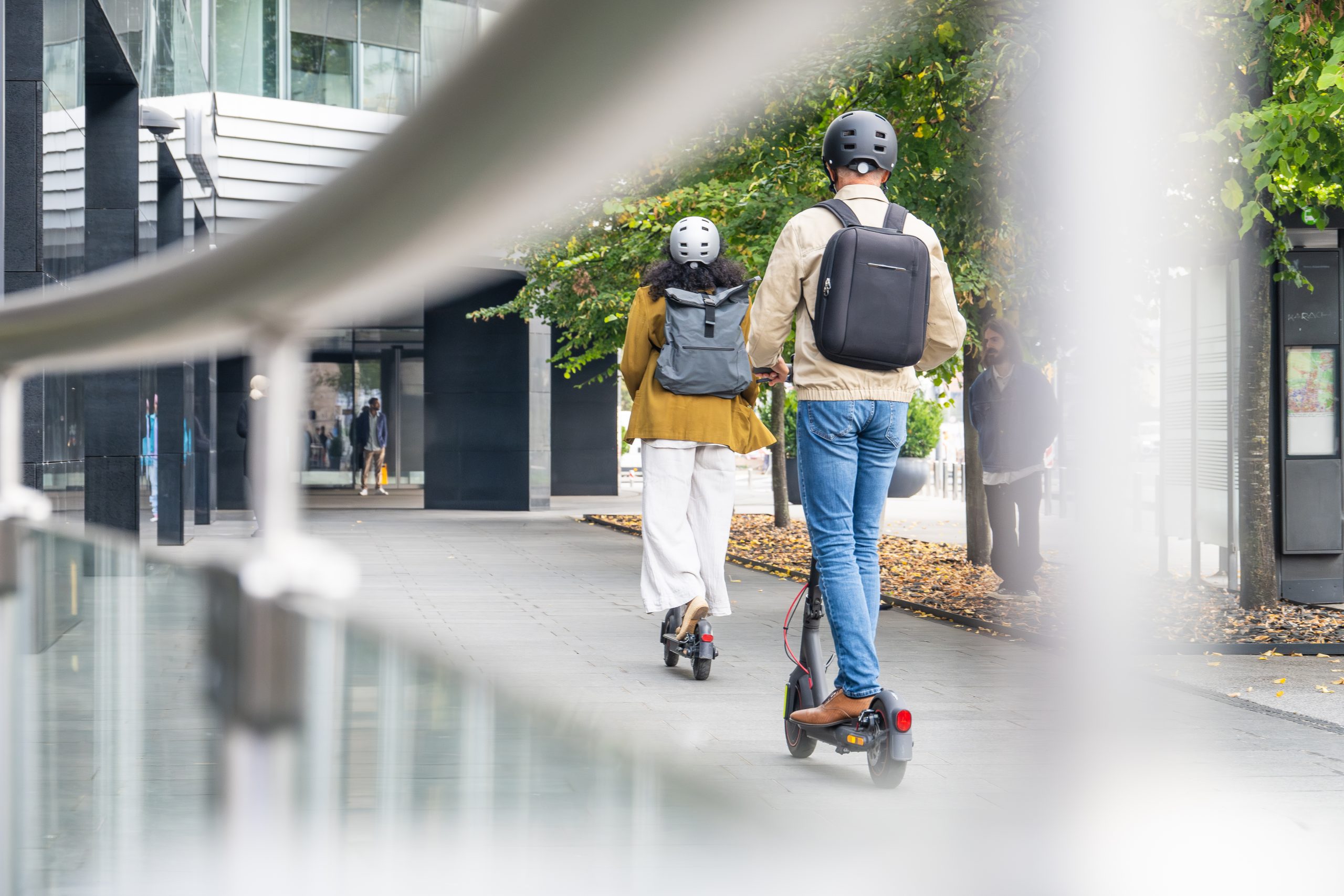BREATHE Project helps vulnerable people adapt to air quality challenges in a changing climate
Climate change is worsening air quality across British Columbia, with rising temperatures driving an increase in wildfire smoke and other airborne pollutants that are dangerous to human health.
An air purifier is one of the most effective ways to improve indoor air quality. However, these devices can be expensive and scarce during peak fire seasons.
The BREATHE Project, a collaboration by Simon Fraser University, the BC Lung Foundation, and The Pacific Institute on Pathogens, Pandemics and Society (PIPPS), helps communities protect themselves by teaching people to build their own air cleaners.
The do-it-yourself workshops were developed in response to evidence gathered during the acute phase of the COVID-19 pandemic. That evidence showed simple DIY air cleaners were very effective in reducing indoor airborne contaminants.
BREATHE workshops are held throughout B.C., and specifically target vulnerable populations, including older adults, new and expecting mothers and birthing parents, and those with respiratory conditions such as chronic obstructive pulmonary disease (COPD) and asthma.
The project’s success lies in its ability to provide an affordable, easy-to-build solution that rivals commercial air purifiers, making clean air accessible to those who need it most.
“There is a lot of climate anxiety, but also a lot that people can do to help themselves navigate periods of extreme heat and wildfire smoke. Each year, I am hoping to offer workshops such as these to prepare people for climate emergencies as they arise” says Dr. Anne-Marie Nicol, BREATHE project lead and an associate professor at Simon Fraser University.
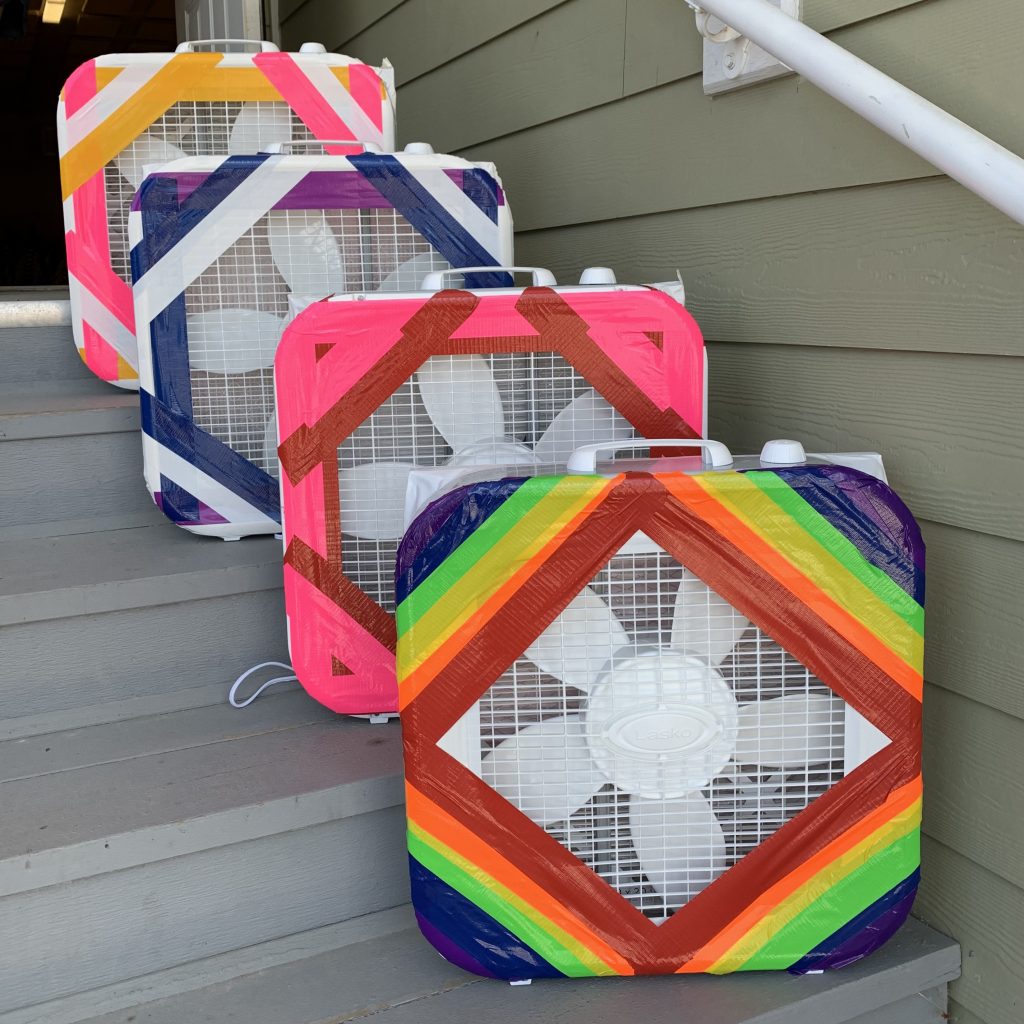
Credit: Riley Condon
BREATHE centres its methodology around community engagement and empowerment. The project designs workshops to teach participants how to build a DIY air cleaner unit using locally accessible materials. To support these efforts, BREATHE has created simple, easy-to-follow infographics, including a shopping list, and step-by-step instructions on how to build a DIY air cleaner.
A ‘train-the-trainer guide’ was also developed in consultation with public health officials to help organizations and local governments conduct their own workshops. The guide provides comprehensive information on the scientific evidence behind DIY air cleaners, along with logistical considerations and potential challenges.
In 2024, the BC Lung Foundation received a grant from the Pacific Institute for Climate Solutions (PICS) to host an intern through the PICS Climate Internship Program. This funding allowed BC Lung Foundation to hire Matthew Edwards, a Health Sciences undergraduate student from SFU, to support the project over the summer. Edwards’ work included coordinating, planning, and hosting workshops throughout the province.
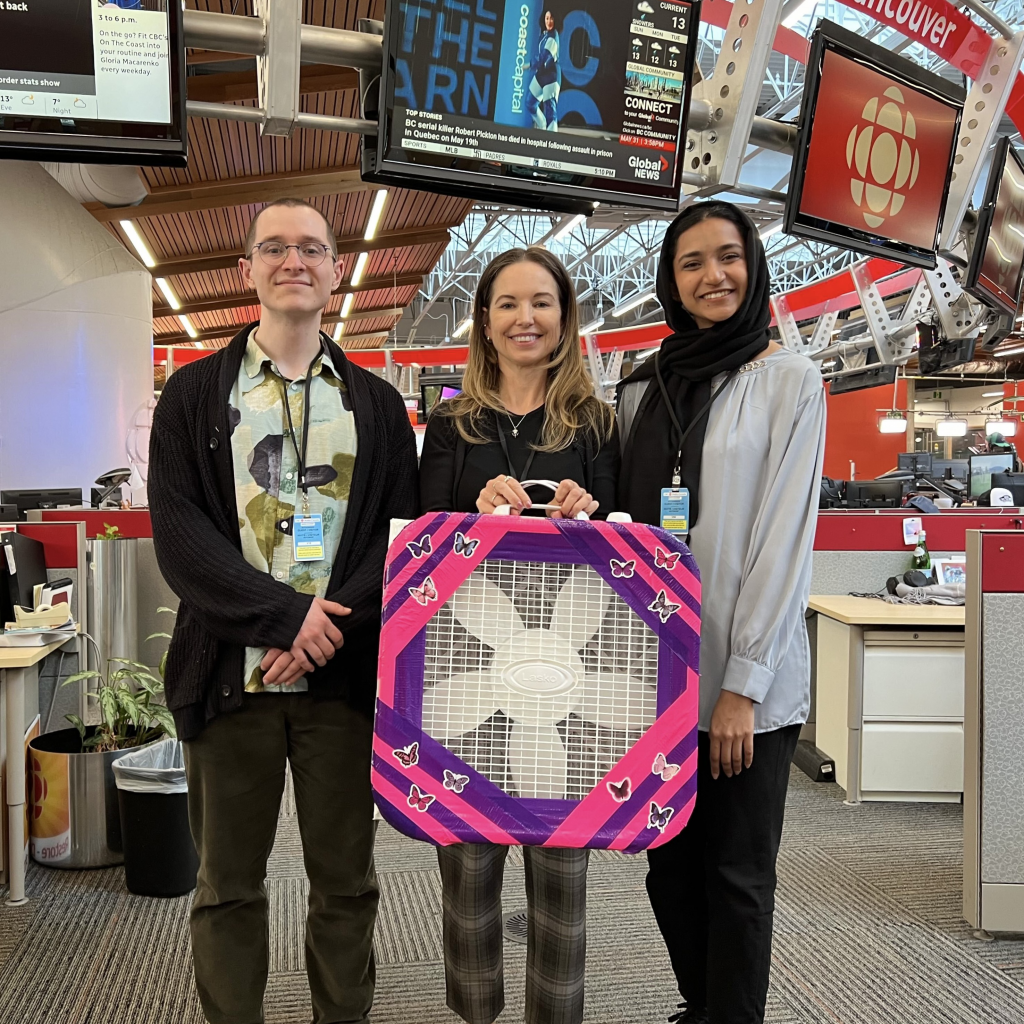
Credit: CBC Vancouver
“Without Matthew, we would not have been able to take our BREATHE workshops to Prince George, which is very impacted by wildfire smoke,” says Nicol. “We needed staff capacity to undertake this trip, and Matthew was keen to travel and help our colleagues in the north learn about the workshops and how to host them.”
Edwards’ hands-on experience in organizing workshops, securing venues, and managing logistics provided him with valuable skills in public health program management and climate-related work, he says.
“The most meaningful aspects of this project have come from conversations with workshop participants” says Edwards.
The BREATHE Project exemplifies the power of collaboration in tackling climate-related health challenges. By equipping communities with the knowledge and tools to build DIY air cleaners, the project fosters resilience and self-reliance, empowering local leaders to protect vulnerable populations during wildfire seasons and other periods of poor air quality.
BREATHE has made a significant impact across B.C. through partnerships with municipalities and organizations like the Fraser Valley Regional District, City of Kelowna, Métis Nation of B.C., City of New Westminster, Town of Oliver, District of Summerland, and the City of Vancouver.
“This project is just one piece of a broader movement towards climate resilience. Particularly, our knowledge dissemination of DIY air cleaners can help vulnerable people to reduce their exposure to air pollution by providing a lower-cost alternative to commercial air cleaners, which some may not be able to purchase”
– Matthew Edwards, PICS Intern with the BC Lung Foundation
The BREATHE Project encourages local governments and community organizations to host their own DIY air cleaner workshops using its “train-the-trainer guide”. This scalable model helps communities prepare for climate emergencies and ensures access to clean indoor air. Interested organizations can reach out to the BREATHE team for support and guidance in hosting these workshops.
More information about the BREATHE Project and DIY air cleaners can be found at BC Lung Foundation DIY Air Cleaners.
Are you an employer looking for expertise and support from a student studying in a climate-related field? Watch our Funding Opportunities page to discover how you can collaborate with passionate students through PICS-funded internships.
Christy Ascione is a communications specialist with the Pacific Institute for Climate Solutions.
